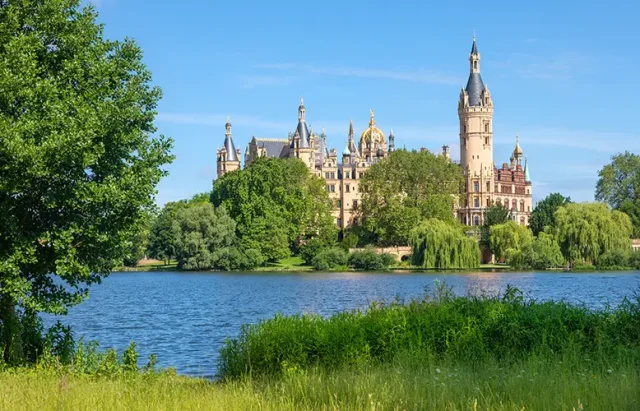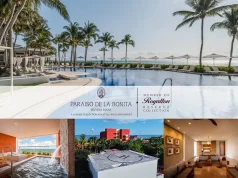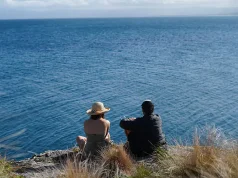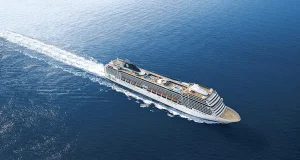
Between Berlin and the Baltic Sea lies a region made almost entirely of water. The lakes of Mecklenburg stretch in a chain across the countryside, hundreds of them, large and small, connected by rivers and canals. From above, the land looks scattered with mirrors. From the ground, it feels endless — a landscape where light and silence have learned to live together.
The largest of these lakes, Müritz, is wide enough that the far shore disappears into haze. Around it, forests rise from sandy soil, and the water meets reeds that move in long slow waves. Villages sit quietly at the edge, their church towers reflected in the shallows. The air smells faintly of pine and salt, though the sea is still many miles away.
This is not dramatic country. It reveals itself through patience — through the way the morning mist lifts, through the sound of oars on water, through the rhythm of wind moving across grass.
Water and Distance
The lakes were carved by ice at the end of the last Ice Age. Glaciers moved south, scraped the land, then melted, leaving behind hollows that filled with water. Over thousands of years, the landscape settled into balance: water, forest, and open sky.
Today, it is one of the quietest parts of Germany. The roads are narrow, the houses low and simple, and traffic rare. Many of the towns still center around a single square, a single church, and a single dock where boats drift slowly in place.
The silence here is not emptiness. It is a texture — the low sound of water lapping against wood, the call of cranes across the fields, the hum of bees near the shore.
The Edge of Müritz
The town of Waren sits on the northern shore of Müritz, a small harbor town of brick houses and wooden piers. In the morning, fishermen bring their boats in with baskets of pike and perch. In the evening, the same boats rock gently in the reflection of the sky.
From Waren, paths lead along the water and into the forest of Müritz National Park. The park is one of the largest in the country, a protected world of lakes, streams, and old beech woods. Walking there feels like entering a slower time. The forest floor is soft with moss, and the air stays cool even in summer. Deer and foxes cross the trails without hurry.
There are lookout towers scattered through the park where you can watch the cranes and sea eagles that nest in the wetlands. The wind moves across the canopy like a tide, and the sound of it fills the distance.
A Landscape Made for Motion
The land between the lakes rises and falls gently, a terrain of meadows, woods, and villages. The roads curve in long arcs, and the horizon is never far away. It is the kind of landscape that feels made for steady travel, for the rhythm of wheels and footsteps.
Many Germany cycling tours pass through Mecklenburg, following quiet routes between Waren, Röbel, and Neustrelitz. The paths follow old farm roads and forest tracks, crossing small bridges and stretches of open land where the light changes with every cloud. Cycling here feels more like drifting than moving — the pace set by the wind, the sound of tires blending with the rustle of reeds.
Along the way, you pass small inns, half-timbered barns, and clearings that open suddenly onto lakes as still as glass. The water seems to wait for you, holding the reflection of everything above it.
Villages and Reflections
In the village of Röbel, the houses cluster close together, their walls painted in shades of red and yellow. The church towers rise just above the trees, and the bells carry across the water. The harbor is filled with sailboats, but even here the mood is unhurried.
Cafés line the waterfront, their chairs set out under chestnut trees. People sit with coffee or beer, talking softly, watching the ripples drift toward the shore. Children feed ducks from the steps of the quay. Time seems to stretch gently, like the surface of the lake itself.
Farther south, the smaller villages become quieter still. Roads turn to gravel, and fields of rye and sunflowers reach to the horizon. The air feels thin and clean, and the only movement is the wind through the crops.
Evening Over the Water
When the sun begins to set, the entire region changes color. The water turns from blue to bronze, then fades into gray. The trees become silhouettes, and the sky grows pale and wide. On still evenings, the reflections are perfect. Every tree, every roof, every bird in flight appears doubled, so that it feels as though the world has paused to look at itself.
In these moments, you understand the pace of the place. It does not rush, it does not demand. It simply continues — water flowing, light fading, the land breathing quietly around you.
Sometimes, as night approaches, you hear the call of cranes or the distant sound of a train passing through. These sounds seem to belong to another world, one that exists just beyond the edge of vision. Then the silence returns.
The Shape of Stillness
The lakes of Mecklenburg do not impress by size or height, but by balance. Every line of water and tree feels considered, as if drawn by hand. The colors change constantly — green to silver, gold to gray — yet the mood remains the same: patient, measured, at ease.
People here have learned to live with space. Their houses face the water, their gardens open to the fields. Boats are left tied to posts, bicycles lean against walls, and windows are left uncurtained so the evening light can enter.
The stillness of the region does not feel isolated; it feels complete. It asks nothing from you except attention.
Water and Memory
In the morning, mist rises again from the lakes, softening the edges of everything. The sound of geese echoes across the water, and the surface trembles where fish break it. The world feels new each day, but always familiar.
It is easy to imagine that little has changed here in a hundred years. The same paths, the same water, the same balance of work and quiet. Even the air seems to carry memory — of rain, of wood smoke, of lives lived slowly and well.
The lakes of Mecklenburg are not a destination so much as a state of being. They remind you that reflection is not just what happens on water, but in yourself.





